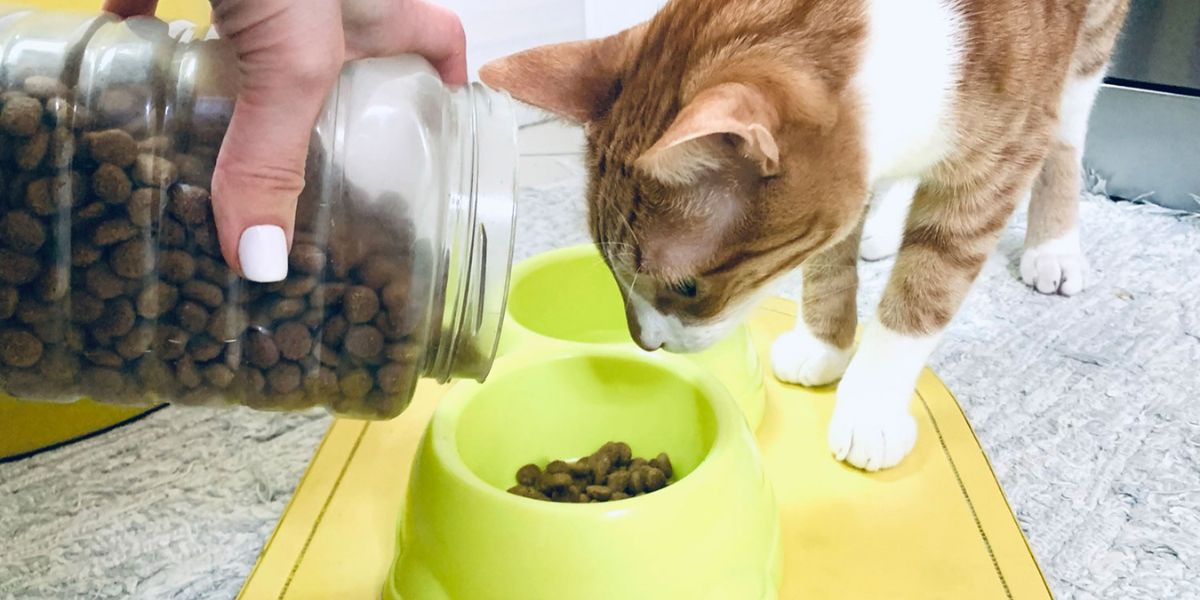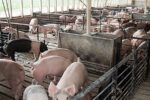Although many homes frequently leave food outside for their pets, this new rule establishes crucial guidelines to protect public health, prevent wildlife interactions, and lessen environmental impact. State residents who own pets should be aware of how this regulation operates and how it might impact their daily routines.
This is an explanation of South Carolina’s Pet Feeder Law and why it’s critical that all pet owners understand it.
The South Carolina Pet Feeder Law: What Is It?
One law designed to lessen the dangers of outdoor pet feeding is the South Carolina Pet Feeder Law.
The main reason for the law is that pet food left outside can draw animals like bears, raccoons, coyotes, and deer, which could result in hazardous encounters between people, pets, and wildlife.
Both the community’s humans and dogs may be at risk from these encounters.
The regulation also attempts to address the negative effects that pet food waste has on the environment, as it can lead to pollution and draw pests.
The law promotes sensible feeding habits, especially when it comes to giving pets food outside, and contributes to a cleaner, safer environment for both people and wildlife.
Important Law Provisions
Pet owners should be aware of the following significant provisions of the South Carolina Pet Feeder Law:
Limitations on Pets Being Fed Outside
In some places, particularly those with a high concentration of wildlife, the law prohibits pets from being fed outdoors.
Pets who leave food outside may unintentionally attract wild animals into suburban or urban areas, potentially resulting in hazardous interactions.
There are exceptions in places where outdoor feeding is thought to be less likely to draw wildlife, but pet owners are generally advised to feed their animals indoors in these high-risk areas.
While still enabling safe pet feeding, the objective is to lessen possible safety risks, such as drawing predators to residential areas.
Seasonal Restrictions on Feeding
Seasonal restrictions imposed by the law restrict pet feeding outside during specific months of the year when wildlife activity is at its highest.
Many wild creatures are more active and searching for food throughout the fall and winter, particularly foragers like opossums and raccoons. There is a greater chance of drawing wild creatures during these times.
In order to prevent attracting wildlife and to safeguard their pets as well as the neighborhood, the law urges pet owners to exercise additional caution when feeding their animals outside during these times.
Florida’s New Pet Feeder Law: What Every Pet Owner Needs to Know
How to Get Rid of Extra Pet Food
The significance of cleaning up after feeding pets outside is emphasized by the law. Pests, rats, and wildlife can be drawn to leftover pet food, which can harm the environment and pose health hazards.
Any uneaten food must be disposed of by pet owners in a way that keeps undesired animals away.
This include keeping pet food in airtight containers, cleaning food bowls thoroughly after each use, and correctly disposing of food waste. In order to prevent food waste from being left outside, the law attempts to make the environment cleaner.
Louisiana’s New Pet Feeder Law: What Every Pet Owner Needs to Know
Promotion of Indoor Nutrition
The law’s encouragement of indoor pet feeding is one of its main features. The safest method to make sure food doesn’t attract wildlife and to keep a clean, regulated pet feeding environment is to feed pets indoors.
Additionally, indoor feeding enables pet owners to keep a closer eye on their pets’ food consumption and make sure they are getting the right nutrients. Owners who build pet feeding stations or designated indoor feeding places are eligible for rewards under the law.
Connecticut’s New Pet Feeder Law: What Every Pet Owner Needs to Know
How Can Pet Owners Adhere to the Law?
Take into account the following actions to make sure you are abiding by the new law:
Feed pets indoors: To prevent drawing in wildlife, feed your pets indoors whenever feasible. This is the safest choice and contributes to a safer, cleaner environment.
Handle leftover food properly: If your pet doesn’t complete its meal, be sure to dispose of it quickly and safely. To keep wildlife away, clean food bowls and containers after every use.
Pet food should be kept in sealed containers to avoid spills and insect attraction.
Seasonal restrictions: Pay attention to the seasonal restrictions on outdoor feeding, especially when wildlife is more likely to be foraging. Observe local regulations and modify your pet care regimen as necessary.
To Conclude
If you reside in South Carolina, make sure you are aware of the most recent rules and modify your pet care regimen appropriately.
Being a responsible pet owner involves more than simply taking good care of your animals; it also involves considering how your behavior may affect the local wildlife and environment.
You may contribute to the protection of your neighborhood, your pets, and the wildlife that lives nearby by abiding by this new regulation.







Leave a Comment